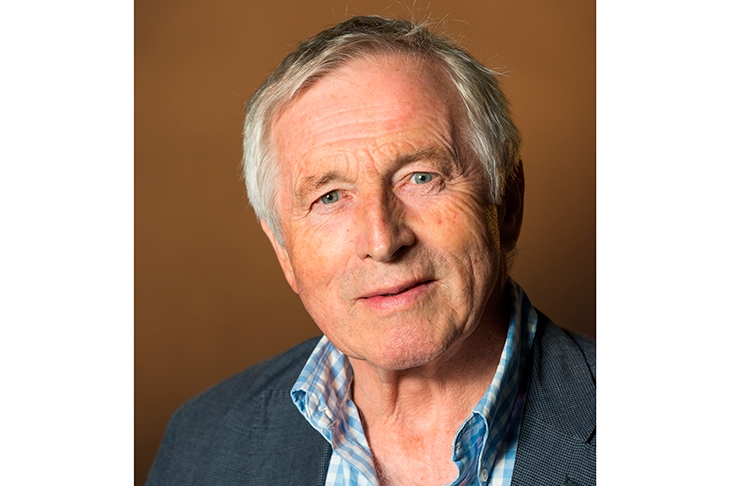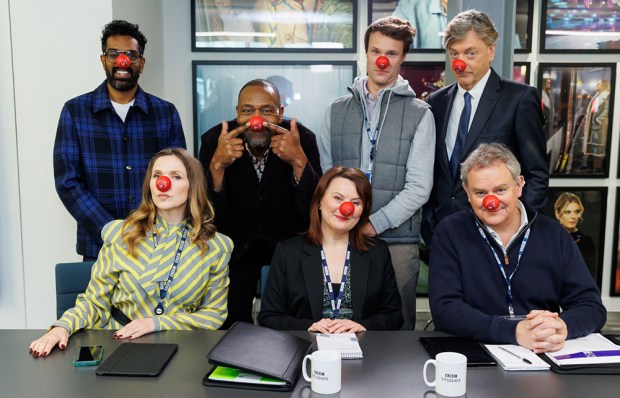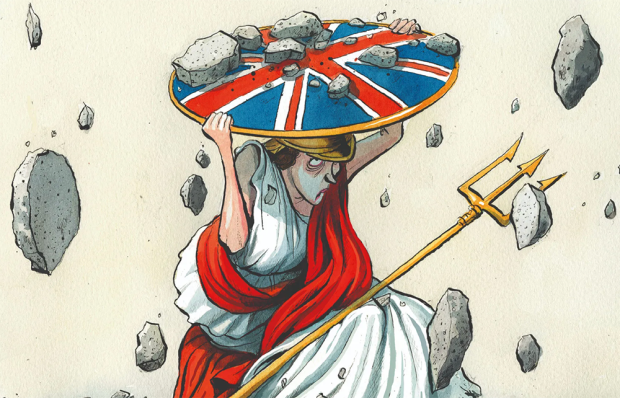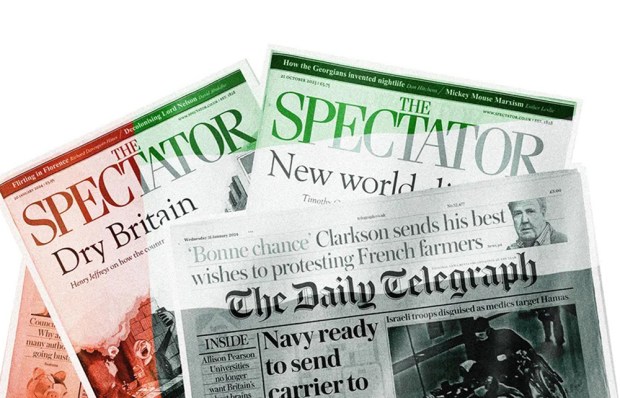I have just had my second jab and it poses a dilemma. As an assiduous Covid rule-taker, I have been appalled by those — including friends and relatives — who have flouted or sidestepped the regulations and guidelines in the belief that they don’t apply to them. ‘We know we shouldn’t but it’s good for us’ or ‘We use our common sense’, they say. Since the issue is as incendiary as Brexit, I have fumed in silence. Of course the rules are anomalous and inadequately explained by ministers but I tend to trust the scientists. That said, the mantra ‘no one is safe until we are all safe’ is clearly nonsensical. Unlike those who are still waiting, I am now as safe as I am ever going to be. Hence my dilemma. I long to hug my grandchildren but that would still be to violate the rules. I am tempted to ‘use my common sense’. After all, ‘it will be good for me’, and it is all about me, isn’t it?
It is now exactly two years since I told the BBC that I was giving up chairing Radio 4’s ‘flagship’ debate programme, Any Questions? I am still asked if I regret it — to which I always answer truly that I don’t. After 32 years of lost Fridays I wanted to liberate myself from the BBC’s impartiality protocols, important as these are. Yet old habits die hard. This does not mean that I am like the great A.J.P. Taylor, who once told me and a flutter of other moths around him at a long-ago Spectator party: ‘I have strong opinions weakly held.’ It is simply that I have come to loathe that loud-mouthed intemperance which passes for lively public debate — an aversion that has been underpinned latterly by reading the foul utterances of Hitler and Goebbels for my new book. So whenever I want to sound off, I try to appear reasonable and measured. Try, that is.
The BBC has enough enemies without its friends chipping in. But sometimes a nudge does not come amiss. As you would expect, the corporation’s coverage of Prince Philip’s funeral was exemplary: sombre without being sepulchral and reticent without being obsequious. You would have to be profoundly cynical to have been untouched by those glimpses of that small, frail widow, our head of state, sitting alone facing her husband’s coffin. Nor do you have to be a monarchist to have felt for her family — like any other but unlike any other — united in mourning their paterfamilias. Too often though, the national broadcaster fails to apply its customary standards when it comes to this uniquely exposed clan. The BBC News website’s account of the toe-curling CBS interview which the Duke and Duchess of Sussex gave to Oprah Winfrey, even as Harry’s grandfather was fading away, is a case in point. Abandoning their customary balance, fairness and sense of proportion, its sleuths opted instead for tabloid sensationalism. Identifying ‘12 things we have learned’ from the couple’s decision to share ‘their side’ of the story — as though there were another side with which we were already familiar — they forbore to point out that no other royal had said a word about the family’s private tribulations. There was no hint of scepticism and no reminder that these were unsubstantiated allegations against unnamed individuals who would never answer back. As I write, it is all still up there. It should be taken down and re-edited accordingly. More broadly, when covering such issues the BBC might keep in mind two lines from Simon Armitage’s eloquent funeral elegy: ‘What their secrets were was everyone’s guess and nobody’s business.’
My latest book is pretty long but, through narcissism and masochism, I once again elected to voice the audio version myself. This meant seven long days of non-stop reading from a 600-page manuscript to produce 22 hours of listening. It is a killer: the fluffs, tummy rumbles, coughing bouts, frogs in the throat, sentences — like this one — that are too long to finish without taking a breath halfway through, as well as those moments when you notice a poorly expressed idea that you start to redraft in your head instead of focusing on the words in front of you. In this case, there were also impenetrably long Russian names. When these loom, it is like Becher’s Brook. You are sure you will stumble and fall. And I usually did. I hope it doesn’t show in the final version.
Everyone now seems to be ‘gaslighting’ everyone else. I’ve had to look up what this buzzword means. Wikipedia says that it derives from a 1938 play called Gas Light in which an abusive husband manipulates his wife to the point where she feels she’s gone mad. Unhappily, the term is now used like a flamethrower in the hands of incontinent pyromaniacs. It should be extinguished before it incinerates us all.
Got something to add? Join the discussion and comment below.
Get 10 issues for just $10
Subscribe to The Spectator Australia today for the next 10 magazine issues, plus full online access, for just $10.
Barbarossa: How Hitler Lost the War is out now.
You might disagree with half of it, but you’ll enjoy reading all of it. Try your first month for free, then just $2 a week for the remainder of your first year.














Comments
Don't miss out
Join the conversation with other Spectator Australia readers. Subscribe to leave a comment.
SUBSCRIBEAlready a subscriber? Log in